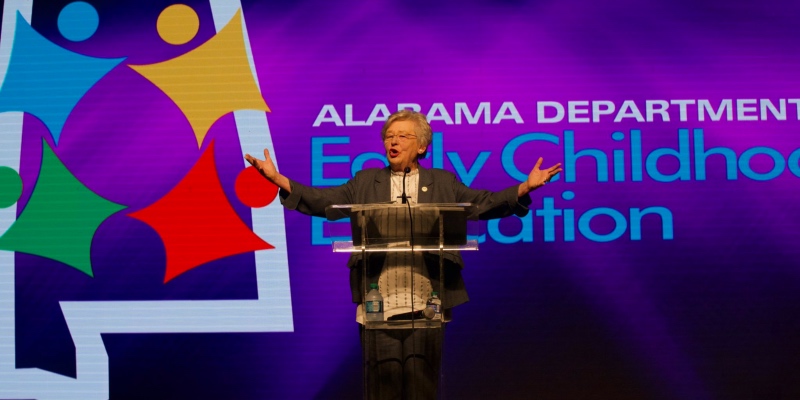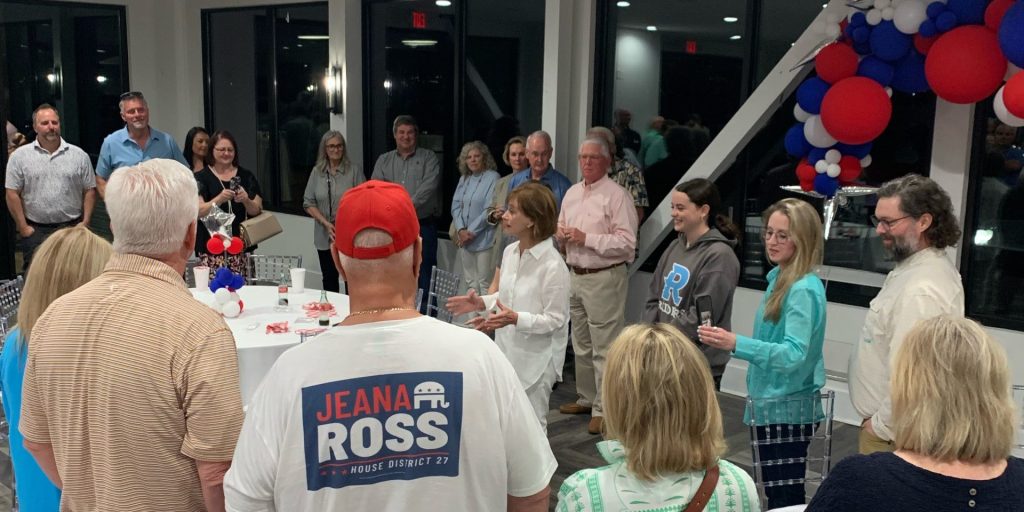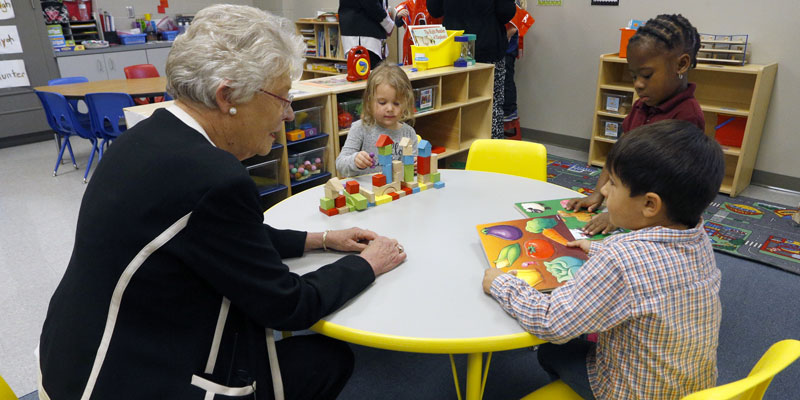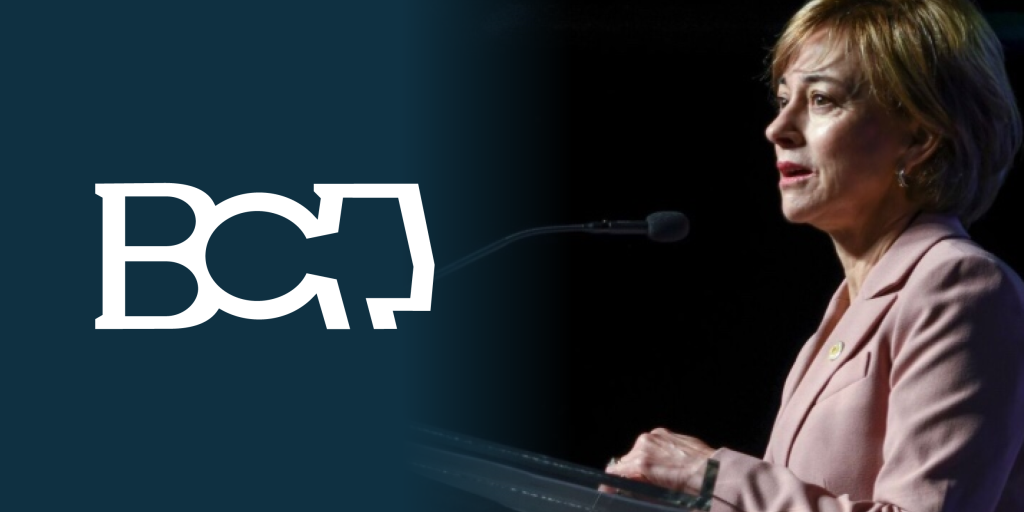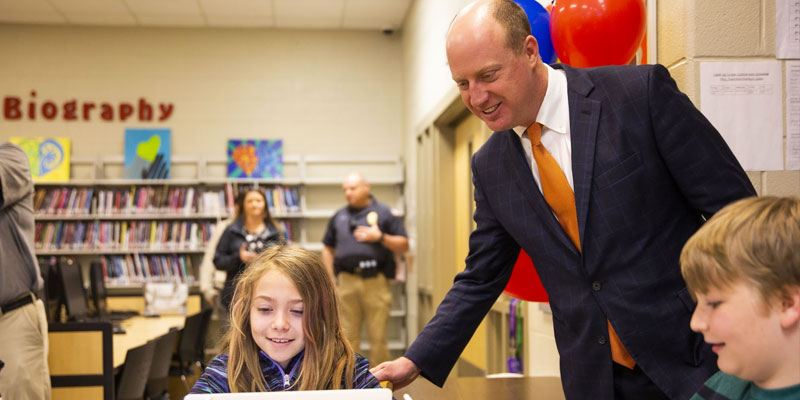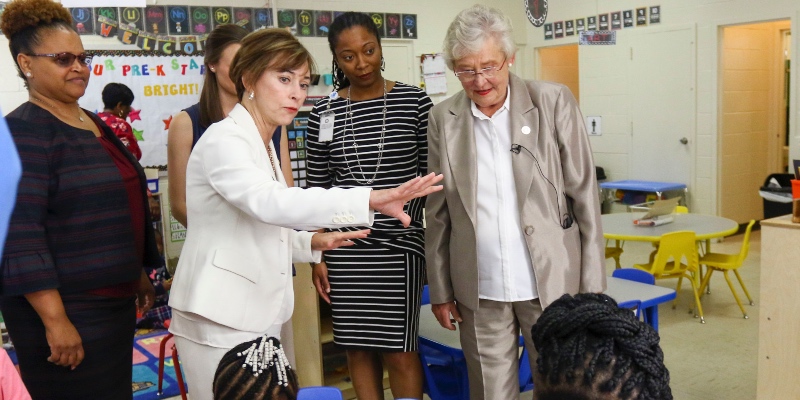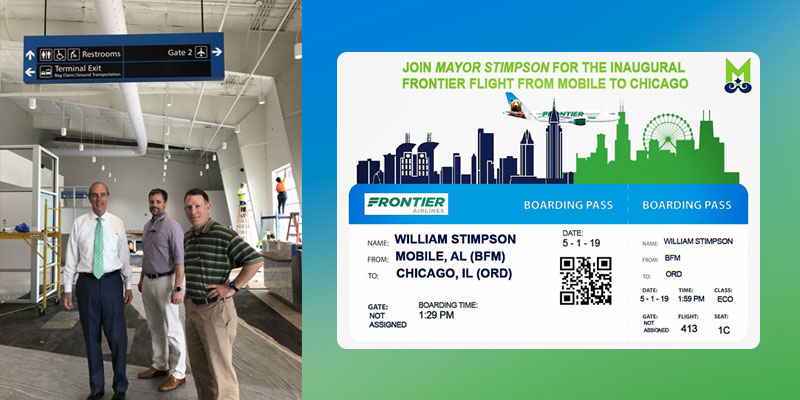Alabama continues to show that early childhood education is critical to turning the state’s overall education metrics around.
On Tuesday, Governor Kay Ivey and the Alabama Department of Early Childhood Education announced that 41 new classrooms will be funded through the Pre-K through 3rd Grade Integrated Approach to Early Learning (P-3).
“Alabama children have reaped the benefits of our nationally recognized First Class Pre-K program, and our P-3 program works to build upon those gains all the way through the third grade. As we head into year three of the P-3 program, I’m proud to be funding 41 additional classrooms,” Ivey said in a statement. “Those early years are vitally important for a student’s future success. By expanding this program even further, we are certainly taking advantage of those valuable years in a child’s learning journey.”
This funding supports an additional 32 Kindergarten classrooms, five first-grade classrooms and four second-grade classrooms to take part in the P-3 program, bringing the new statewide total from an original 35 classrooms in the 2017 pilot year to 117 P-3 classrooms this upcoming 2019-2020 school year.
The recipients are as follows:
Zion Chapel, New Brockton & Kinston in Coffee County – $160,000
Wetumpka Elementary in Elmore County – $45,000
Skyline, North Sand Mountain & Woodville High in Jackson County – $90,000
Lexington High, Central High, Brooks Elementary & Rogers High in Lauderdale County – $105,000
Brewbaker Elementary in Montgomery County – $30,000
Odenville Elementary & Moody Elementary in St. Clair County – $180,000
University of North Alabama Kirby Laboratory in Florence – $30,000
University Charter School in Sumter County – $90,000
Currently, 1,348 children are impacted by the P-3 program. With the addition of 41 new classrooms to the program, more than 2,100 students will be participating in the upcoming 2019-2020 school year.
The goal of the P-3 program, now moving into its third year, is to expand the early learning continuum from First Class Pre-K through third grade. Alabama’s First Class Pre-K program has been recognized as the nation’s best for 13 consecutive years.
“A high-quality early education provides the foundation for student success in school during the years when children have the greatest growth potential,” Alabama Department of Early Childhood Education Secretary Jeana Ross remarked. “We are excited to have these new models of seamless learning continuum from pre-K to 3rd grade that align and integrate a comprehensive approach to student learning.”
The Alabama Department of Early Childhood Education and the Alabama State Department of Education are currently working together to align instructional practices, assessment and leadership from pre-K to 3rd grade.
P-3 works to ensure student success and achievement gap closure by expanding access to the nationally recognized, high-quality First Class Pre-K program model and taking the most successful parts of K-3 initiatives to establish a strong foundation of early learning experiences that promote student achievement and success.
P-3 is funded by the Alabama Department of Early Childhood Education through the W.K. Kellogg Foundation, the governor’s Strong Start Strong Finish education initiative and the federal Preschool Development Grant, Birth through Five.
In addition to funding new P-3 classrooms, 14 Alabama elementary school principals and school system administrators have successfully completed the Alabama Pre-K – 3rd Leadership Academy. The first collaborative initiative of its kind in the nation, the P-3 Leadership Academy is provided in partnership with Council for Leaders in Alabama Schools (CLAS) and the National Association of Elementary School Principals (NAESP). This is the only such program in which participants, upon successful completion of the program, receive a national certification credential.
In June 2018, the first-ever such cohort in the country to complete this national pilot program received their Alabama P-3 Leadership Credential, and the third leadership cohort will commence in May 2019.
By applying their knowledge of child development, subject matter content and pedagogical approaches to align educational experiences along the P-3 continuum, educators ensure that children enter classrooms that promote their ongoing educational progress by building on what they learned during the previous year. Knowing this, educators can intentionally integrate the developmental domains into the teaching and learning subject matter for young children.
Research findings from multi-year early education interventions suggest that the components of the P-3 approach can combine to make a positive contribution to young children’s learning, providing the pathways through which more children will achieve success by the end of third grade.
Sean Ross is a staff writer for Yellowhammer News. You can follow him on Twitter @sean_yhn




